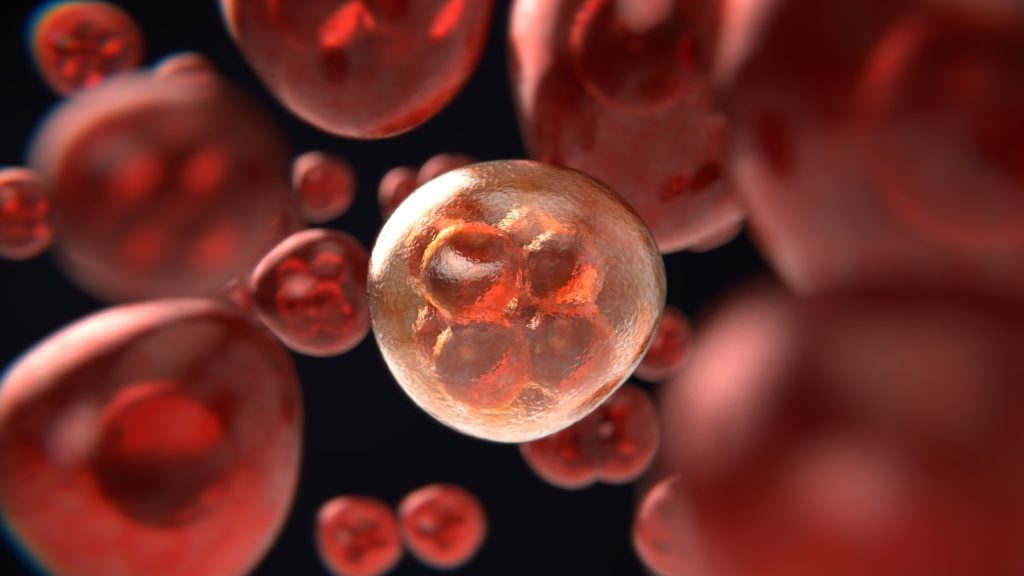The Hebrew University of Israel has conducted research focused on the benefits that cannabis could have on cancer patients. The study determined that CBD could be used in tandem with chemotherapy, boosting the efficiency of the treatment without harming the surrounding healthy cells. This could lead to new options for patients who currently suffer many side effects due to chemotherapy.
Cannabis could help protect healthy cells during chemotherapy


At the forefront of the fight against cancer is the introduction of drugs capable of killing cancer cells without harming healthy ones. A study by the Hebrew University says that combining anti-cancer drugs with CBD would allow the cancer cell to penetrate and die from within.
The study was conducted by the Hebrew University’s School of Medicine and Neuroscience Unit and published in the Frontiers in Pharmacology Journal. The results found that combining CBD with chemotherapy would allow the latter to be introduced directly into the cancer cells. This direct injection would make the treatment much more effective and efficient, as well as reduce its side effects.
The new method, developed in the research, would inject through the small and already existing “TRP channels” the chemotherapy drugs thus being more effective. In that way, there would be a greater benefit since the drug would be directed only to the cancer cells, it would avoid harming the healthy cells and it would be more effective.
If you want to know more about cannabis, how it could work in tandem with chemotherapy in order to fight cancer cells more effectively, and to find out the latest cannabis news, download the Hemp.im mobile application.
Cannabis boosted the effective of chemotherapy and protected healthy cells
During the study, researchers introduced the chemotherapy drug Doxorubicin directly into the liver cancer cells and killed them from within. This drug is very effective in treating certain types of cancer, although it causes sometimes serious side effects.
The researchers thought that if the drug was introduced directly into the cancer cells and through the TRP channels, it might reduce these side effects, thus making the outcome of doxorubicin more effective. This is where CBD could play a role.
Cannabidiol activates the TRPV2 protein which in turn opens TRP channels in liver cancer cells and thus directly enters doxorubicin. That is, CBD would help chemotherapy to be inserted into and out of the cancer cells, without harming the surrounding healthy cells. Other substances are also known to be able to open these TRP channels such as 2-APB.
The research could lead to new options for cancer treatments
The researchers compared doxorubicin treatment with CBD and also the same drug with 2-APB. The result was more effective and with lower doses when using CBD.
“We have shown that a combination of CBD or 2-APB, which activates TRP channels, together with doxorubicin results in significantly higher concentrations of doxorubicin in liver cancer cells compared to cells exposed to doxorubicin alone,” the researchers concluded.
“In addition, we have shown that low doses of doxorubicin in combination with 2-APB or CBD result in a significant decrease in the number of living liver cancer cells and their colonies compared to doxorubicin alone. Finally, we have also shown that the combination of doxorubicin with CBD kills many more liver cancer cells and their colonies than doxorubicin with 2-APB.
Another study published by Oncogene’s Oncology Journal also found that mice with pancreatic cancer doubled their lifespan when CBD was added along with chemotherapy, compared to chemotherapy alone.
More research will be needed, but it appears that CBD may help chemotherapy be more effective.
__
(Featured image by Colin Behrens via Pixabay)
DISCLAIMER: This article was written by a third party contributor and does not reflect the opinion of Hemp.im, its management, staff or its associates. Please review our disclaimer for more information.
This article may include forward-looking statements. These forward-looking statements generally are identified by the words “believe,” “project,” “estimate,” “become,” “plan,” “will,” and similar expressions. These forward-looking statements involve known and unknown risks as well as uncertainties, including those discussed in the following cautionary statements and elsewhere in this article and on this site. Although the Company may believe that its expectations are based on reasonable assumptions, the actual results that the Company may achieve may differ materially from any forward-looking statements, which reflect the opinions of the management of the Company only as of the date hereof. Additionally, please make sure to read these important disclosures.
First published in La Marihuana, a third-party contributor translated and adapted the article from the original. In case of discrepancy, the original will prevail.
Although we made reasonable efforts to provide accurate translations, some parts may be incorrect. Hemp.im assumes no responsibility for errors, omissions or ambiguities in the translations provided on this website. Any person or entity relying on translated content does so at their own risk. Hemp.im is not responsible for losses caused by such reliance on the accuracy or reliability of translated information. If you wish to report an error or inaccuracy in the translation, we encourage you to contact us.



Comments are closed for this post.